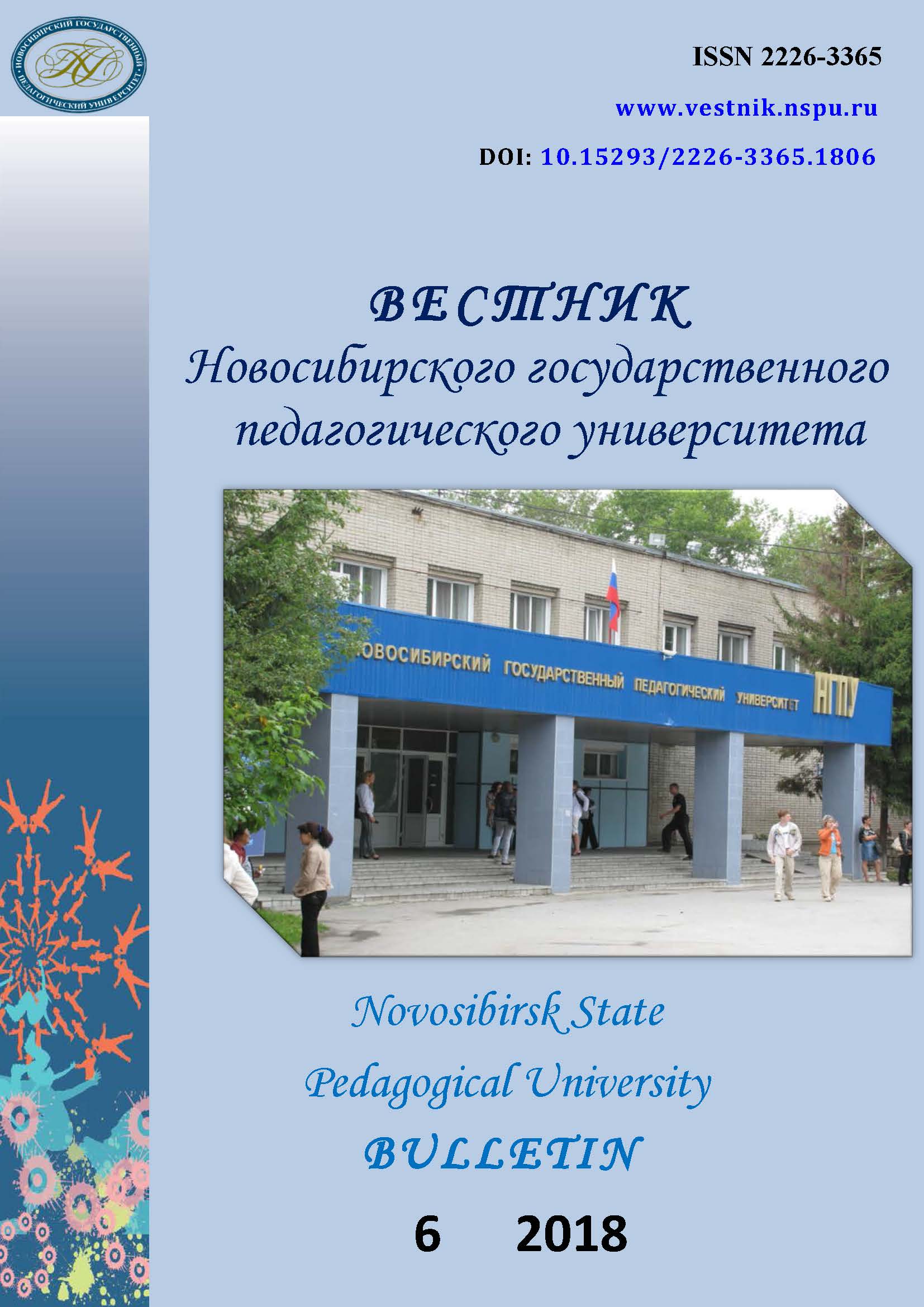Универсальные гуманитарные компетенции как основа профессиональной компетентности современного педагога
Universal humanitarian competencies as a basis for developing professional competence of a modern teacher
Author(s): Marina Ivanovna Bekoeva, Svetlana Alekseevna Ambalova, Boris Aleksandrovich TakhokhovSubject(s): Vocational Education, Sociology of Education
Published by: Новосибирский государственный педагогический университет
Keywords: Competence; Practical intellect; Creativity; Dialogicality; Leadership; Co-creation; Igrotehnic Competence; Improvisation
Summary/Abstract: Introduction. The article affirms the idea that the role of a teacher in modern education is not determined by transmission of a certain bundle of knowledge, information and practical experience. Thus, the work addresses a significant scientific problem of identifying the set of universal humanitarian competences which form the basis of modern teachers’ professional competence. The purpose of the research is to identify a specific corpus of universal humanitarian competences of teachers, creating a conceptual and methodological level of their professional competence. Materials and Methods. The methodology of the work is based on the humanistic paradigm of education, focused on individual’s free development; systemic, personality-centered, activity-based and competence-based approaches, using such methods as generalization and analysis, comparison and description. Results. The study found that competence-based approach updated in European-American and Russian education determined addressing to competences necessary for teachers’ professional and personal development, on the other hand, permanent complication of their professional duties, the need for psychological and pedagogical support for students at a high level generate such competencies, which are important ‘at this particular moment’, in today's classroom, but at the same time, they have universal humanitarian nature. From the authors’ point of view, these competencies constitute teachers’ innovativeness and creativity, their ability to create student-centered educational environment, improve culture of teaching and learning, encourage them for a constant creative search. The corpus of such competencies are dialogical, co-creative, improvisational, directorial, game-technical, multicultural and inclusive. Their brief definitions are presented in the article. Conclusions. The implementation of the proposed approach to preparation of students creates necessary conditions for a substantial expansion of a range of professional and pedagogical competences of prospective teachers, diversifies and enriches the educational process within a university, contributes to strengthening students’ civic position and developing their practical intelligence and humanitarian outlook.
Journal: Вестник Новосибирского государственного педагогического университета
- Issue Year: 8/2018
- Issue No: 6
- Page Range: 59-72
- Page Count: 14
- Language: Russian

